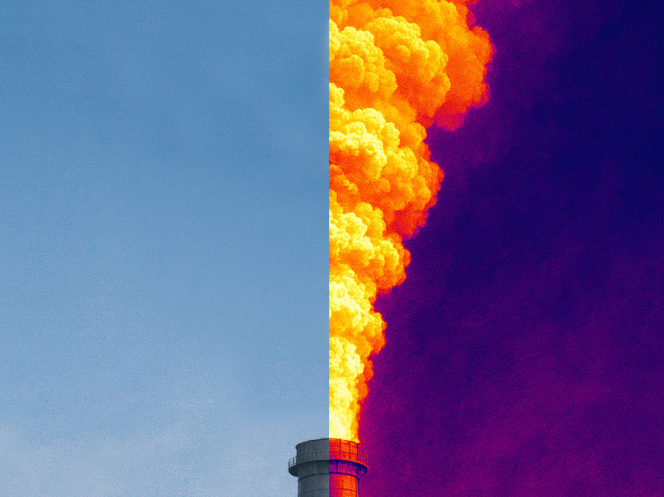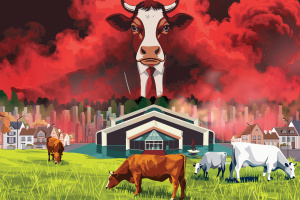Methane Unmasked

An investigation by the Changing Markets Foundation and Deutsche Umwelthilfe has found significant methane leaks at two Danish biogas plants, raising urgent questions about the climate credentials of so-called ‘green’ energy projects tied to the dairy sector.
The methane emissions were detected using industry-standard instruments, including an optical gas imaging camera and trace gas analyser, conducted by a thermo-imaging expert.
Main findings:
-
- At the Shell-owned Nature Energy plant in Videbæk (formerly part-owned by Arla), methane concentrations reached over 5,000 parts per billion (ppb), more than double the regional atmospheric average (2,077 ppb).
- The leak was observed on consecutive days at different times of day, with the measuring instruments capturing both the methane levels and the source of the leak from a compressor stack –indicating intentional rather than accidental venting.
- At Arla’s Arinco processing facility, originally linked by a pipeline to the Vidabæk plant, we filmed a methane release from a chimney.
- A Freedom of Information request by Greenpeace Denmark shows the Videbæk plant has a record of significant to major leaks, and that mismanagement of documentation on the feedstock used has allowed unsubstantiated sustainability claims to be passed down to consumers. However, some information about agricultural feedstocks was withheld.
- At the Tønder biogas plant, one of Europe’s largest, we detected atmospheric methane levels outside the facility, spiking at nearly 35,000 ppb, around 16 times higher than background levels. While the source couldn’t be pinpointed, such elevated levels raise serious concerns about methane leakage in the region.
Denmark is one of the largest biogas producers per capita in Europe. In 2023, the country introduced regulations aimed at reducing methane leaks at biogas plants. As many countries and companies turn to biogas and biomethane as ‘green’ solutions to agricultural emissions and an alternative to fossil gas, gaps in current policies must be recognised and addressed.
You might also like...

The Meat Agenda: Agricultural Exceptionalism and Greenwash in Brazil
As Brazil prepares to host the 30th conference of the parties of UNFCCC (COP30) in heart of the Amazon, the country is positioning itself as a global climate leader with ambitious emissions reduction targets...

Net-zero integrity: Nestlé’s methane blindspot
In light of its huge contribution towards global warming, this briefing analyses Nestlé’s climate plan to reach net zero by 2050.

High Steaks: How focusing on agriculture can ensure the EU meets its methane-reduction goals
The EU is currently on track for around 17% methane reductions by 2030, which falls short to the 30% target it has committed to by signing the Global Methane Pledge. It is also significantly less than what t...